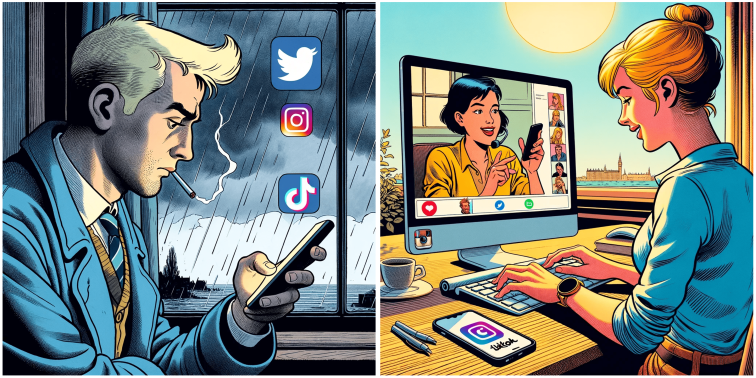New study by MCM Scholars in PLOS ONE reveals 'Social Media Paradox': Increased social media usage is linked to greater loneliness. But rich media like video chats can offer a remedy.

The ongoing shift from physical to digital challenges the very essence of human connection. Dr. David Jütte, Prof. Thorsten Hennig-Thurau, and Gerrit Cziehso from the MCM's Chair for Marketing and Media joined forces with Hamburg University’s Prof. Henrik Sattler to delve into the critical question of how social media usage influenced loneliness during the lockdowns initiated to curb the coronavirus spread.
Their research, set against Germany's initial lockdown phase, employs survey panel data (from before and in midst the lockdown!) to uncover what the MCM scholars name the "social media paradox." While social media promises connectivity, their findings reveal an consequential paradox: increased social media use was associated with heightened loneliness. Importantly, our results also show that this link can be countered by leveraging richer digital media forms, like video chats, which soften the impact of the social media paradox.
Dr. Jütte and co-authors' work juxtaposes the potential social benefits of digital platforms with the "internet paradox," providing longitudinal evidence on the complex dynamics between social media and loneliness. The results caution against viewing social media as a simple substitute for face-to-face interaction, highlighting the nuanced role of richer digital communication forms, like video chats, in mitigating loneliness.
Dive into the open-access article at https://journals.plos.org/plosone/article?id=10.1371/journal.pone.0296423 to explore how digital interactions shape our sense of connection in times of physical distancing. It should be of value for both social media users and policymakers navigating the balance between digital and physical social worlds.
Illustrations by Dall-E3/ChatGPT

